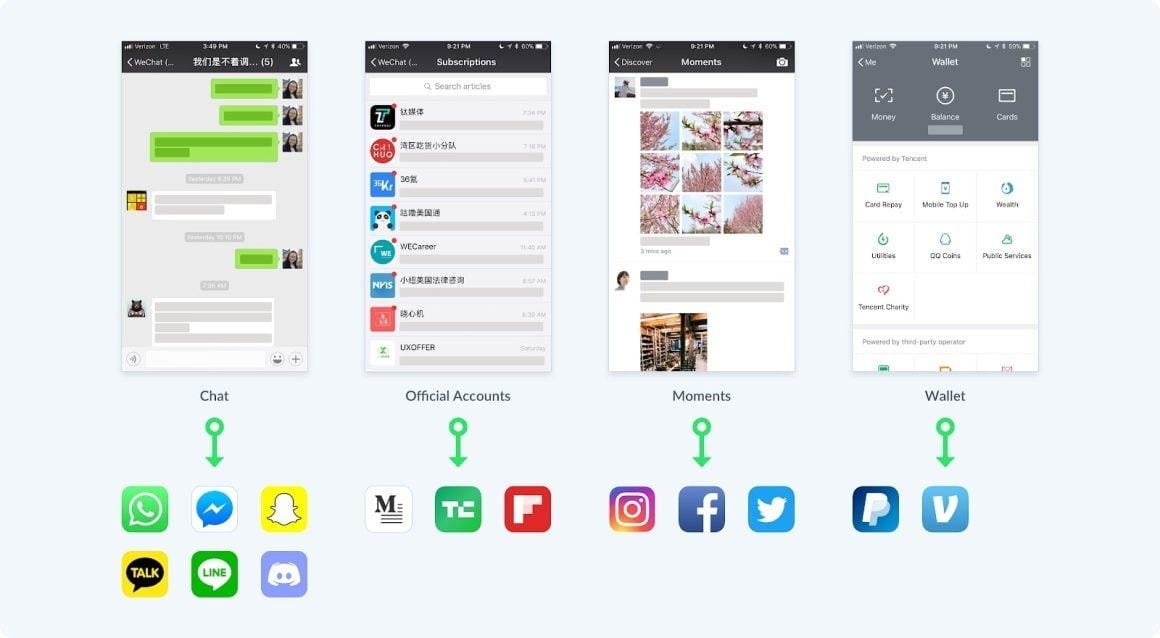The potential of WhatsApp Native Startups in LatAm
Recently, during a dinner with founders, I noticed something interesting: half of them were creating startups where WhatsApp was an essential interface. This reinforces what many have already suspected: in Latin America, WhatsApp has emerged as one of the most promising platforms to create globally successful companies.
The reason is simple: messaging is the true 'killer app' of mobile phones. Even without social media, it's hard to imagine a phone without a messaging app. At the heart of the cellphone's creation is communication. With nearly 3 billion users sending more than 100 billion messages daily, WhatsApp is already a central part of daily life. The app is installed on 99% of Brazilian smartphones, and 93% of users engage with the app every day.
As Sasha Kaletsky once said, if aliens landed on Earth and tried to understand how humans interact with one another, they would probably classify our communication as being predominantly based on WhatsApp. Our use of the world's most popular messaging app is so distinctive that it caught Zuckerberg's attention, leading him to choose Brazil as the host of the platform's most important annual event, Conversations, which took place in June in São Paulo.
WhatsApp also identifies legitimate users based on usage patterns: if you're in groups with your contacts, communicate with some regularity, and have verified your number, there's a high probability you're a real person. On the other hand, if you send thousands of spam messages and no one responds, you're likely a fake. The same logic applies to businesses. In this way, WhatsApp has created one of the world's most powerful identification systems, ensuring a network of active and legitimate users.
Having a network where both people and businesses are online and legitimate is incredibly valuable, as it's becoming a more important virtual address than email in some countries. But it's more than that: WhatsApp is a platform where applications are built. Through it, you can translate texts, schedule appointments, use artificial intelligence, make payments, send money online, create content, get educated, and much more.
As Professor Andrei Hagiu says, platforms are tools that enable connections between two adjacent customers. And if there's something WhatsApp enables, it's the relationship between different entities: People with People, Businesses with People, Businesses with Businesses, Robots with People. It's in these connections that the platform's potential lies.
More than just a messaging platform
WeChat is the most famous example of a SuperApp, which started as a messaging platform and evolved into much more: it became a platform where users could hail taxis, transfer money, buy tickets, use social media, and browse the web. This model was possible due to China's unique context, marked by an authoritarian regime and tight control over access.
However, WhatsApp is creating a different kind of SuperApp that doesn't compromise its core function of messaging but strengthens it. Instead of overloading the app with competing functions, the platform's experience is being driven by three major forces: commerce, artificial intelligence, and the development of applications within WhatsApp itself.
WhatsApp and Commerce
The intersection of business and chat seems to improve the user experience. WhatsApp is adding business functionalities while still essentially being a communication space. As Byrne Robart mentioned, communication and commerce are, at the core, the same thing. Every time there's an advancement in communication, the price of any good and the economy as a whole become more efficient. This is because two fundamental aspects improve: there's more clarity about the information regarding the good (price, quality, demand, supply) and that information circulates faster.
An interesting example from the 2000s is Buscapé: by aggregating prices from various products across different websites, it communicated prices to buyers transparently and accessibly. This made the market more efficient by reducing information asymmetry. Expanding commerce within WhatsApp, therefore, increases the quantity and quality of information being exchanged and, consequently, improves the economy's efficiency. By allowing businesses to integrate catalogs, customer service, and payments within the app, WhatsApp facilitates both communication and commercial transactions, speeding up the buying and selling cycle. Add in instant transactions like Pix, and you witness a Cambrian revolution.
Meta AI
The highlight of the latest Meta Connect (Sept/24) was the unveiling of Meta AI, Meta's artificial intelligence chat solution. To put it simply, it's like having ChatGPT within WhatsApp, powered by Meta's open-source model Llama 3.2. This aligns with Meta's vision of adding value for WhatsApp users. You'll be able to edit photos, ask questions, translate texts, and chat with avatars of content creators—all within WhatsApp. Though it's not yet available globally, Meta AI is set to become the largest AI assistant in the world.
From the user's perspective, it's a new paradigm. WhatsApp chat will become an assistant or helper for mundane tasks. It's a move by Meta to capture more of the time users spend on their phones—rather than having a separate translator app, for example, users will simply use Meta AI. If successful, it's another step toward making WhatsApp even more indispensable.
Building apps within WhatsApp
At the end of the day, the success of any company can be reduced to its ability to keep customers happy. You may not know this, but here's a snippet from Nubank's first pitch deck, when it was still called EOS. Nubank was a mobile-first bank, but guess what? The pitch didn't mention "a mobile-first bank." By slide 2, the purpose was clear: to build a customer-centric bank in Brazil.
Nubank's platform, Mobile, turned out to be perfect for creating something customer-centric at the time, as it allowed for a new experience without the need for physical branches and with a better user experience. Mobile proved to be the ideal platform for this goal, and we can conclude that the choice of platform is a derivative of the optimal decision for the customer.
What's happening today is that many entrepreneurs are building products whose user experience is better through WhatsApp. That's why we're seeing a generation of WhatsApp-first solutions.
Entrepreneurs are reinventing traditional products by integrating their solutions directly into WhatsApp. One example is Safar Astrologia, which sends personalized daily predictions to its users via WhatsApp/Mobile, creating a more fluid and personalized experience than web or mobile-based platforms. This 'WhatsApp-first' approach applies to various sectors like education, finance, and healthcare, where tools like ChatClass (education), Magie (digital bank), Felix Pago (international remittances), Beconfident (English learning), and Benvo (healthcare) offer simplified and highly effective solutions directly on the platform.
The success and rapid growth of these businesses reveal a high demand and satisfaction among users.
The Opportunity in Latin America
Israel became a cybersecurity innovation lab due to its geopolitical context. Surrounded by regional instability and constant threats, the country had to develop cutting-edge cybersecurity solutions to ensure its security. This continuous pressure led Israel to always be at the forefront of technology, testing and refining systems in real and high-pressure situations.
This environment gave rise to some of the world's largest cybersecurity companies, such as Check Point, Palo Alto Networks, and Cybereason, which initially solved local problems but soon realized that their solutions had global applications.
Similarly, Brazil and other Latin American countries, with their heavy use of WhatsApp, are becoming laboratories for innovative solutions based on the platform. As WhatsApp adoption grows in other markets, Latin American startups, already mature in this ecosystem, are ready to scale globally, just as Israeli companies did in cybersecurity.
We already see signs of WhatsApp's expansion: India has 536 million active users with a 55% market share, and in the U.S., over 100 million people use WhatsApp, with a 42% market share. As WhatsApp becomes more popular in other regions, Latin America will be at the forefront.
As Martin Escobari often says, in Brazil, we have the privilege of "reading tomorrow's newspaper" by observing markets like the U.S. In this case, anyone wanting to understand the future of innovation on WhatsApp will have to look at Brazil.
The other side
If you work in tech, you've probably heard of "ChatGPT Wrappers." These are custom solutions built for specific user groups on top of OpenAI's GPT models.
In an interview, Sam Altman used a threatening tone towards startups whose main value proposition and defensibility is having a "backend" with OpenAI. In his words: "OpenAI will run over you if your startup is just a layer on top of GPT-4."
This example illustrates the complexity of depending on large platforms: the balance of power is uneven, and any changes can profoundly impact businesses built on them.
The same logic applies to WhatsApp: changes in pricing, API openness, or privacy directly affect companies relying on the platform as the basis of their products, always representing a risk. If Brazil's LGPD (data protection law) congress decides that only certain data can be shared on WhatsApp, the entire chain would be affected. So, there is always a risk.
From a positive perspective, WhatsApp is a great partner for entrepreneurship: it allows any company to test different business models without needing to commit to app stores. Plus, Meta has a pro-platform stance when it comes to WhatsApp.
In the future, as WhatsApp becomes an even more global platform, Brazil and Latin America will be at the forefront of innovation. The path we've already begun to carve out will serve as an example for the world.
What’s impressive is the enormous value created for users and how we, Latinos, are at the forefront of this revolution. Startups in the region are ready to scale globally as the platform grows in other markets.
Anyone who wants to understand the future of solutions on WhatsApp needs to pay attention to Latin America.
If you are interest about this topic, I will be happy to talk. Email me on abreu@sundaydrops.com




